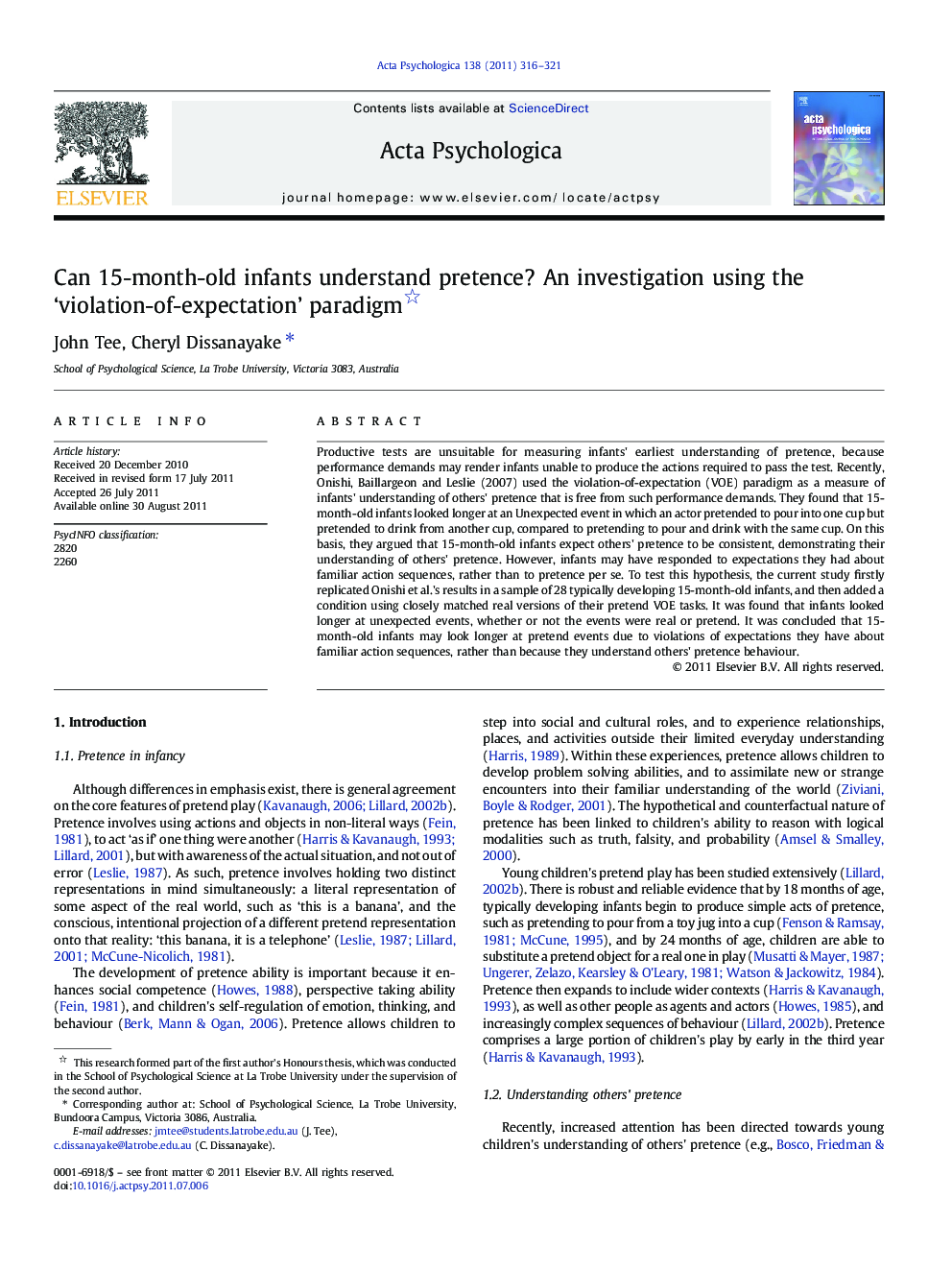| Article ID | Journal | Published Year | Pages | File Type |
|---|---|---|---|---|
| 919986 | Acta Psychologica | 2011 | 6 Pages |
Productive tests are unsuitable for measuring infants' earliest understanding of pretence, because performance demands may render infants unable to produce the actions required to pass the test. Recently, Onishi, Baillargeon and Leslie (2007) used the violation-of-expectation (VOE) paradigm as a measure of infants' understanding of others' pretence that is free from such performance demands. They found that 15-month-old infants looked longer at an Unexpected event in which an actor pretended to pour into one cup but pretended to drink from another cup, compared to pretending to pour and drink with the same cup. On this basis, they argued that 15-month-old infants expect others' pretence to be consistent, demonstrating their understanding of others' pretence. However, infants may have responded to expectations they had about familiar action sequences, rather than to pretence per se. To test this hypothesis, the current study firstly replicated Onishi et al.'s results in a sample of 28 typically developing 15-month-old infants, and then added a condition using closely matched real versions of their pretend VOE tasks. It was found that infants looked longer at unexpected events, whether or not the events were real or pretend. It was concluded that 15-month-old infants may look longer at pretend events due to violations of expectations they have about familiar action sequences, rather than because they understand others' pretence behaviour.
► Exact replication of Onishi et al.’s (2007) findings from Experiment 1. ► 15-month-olds look longer at unexpected events regardless of the pretence context. ► Longer looks are due to violations of expectations about familiar action sequences. ► Longer looks at a pretend unexpected event need not indicate pretence understanding.
